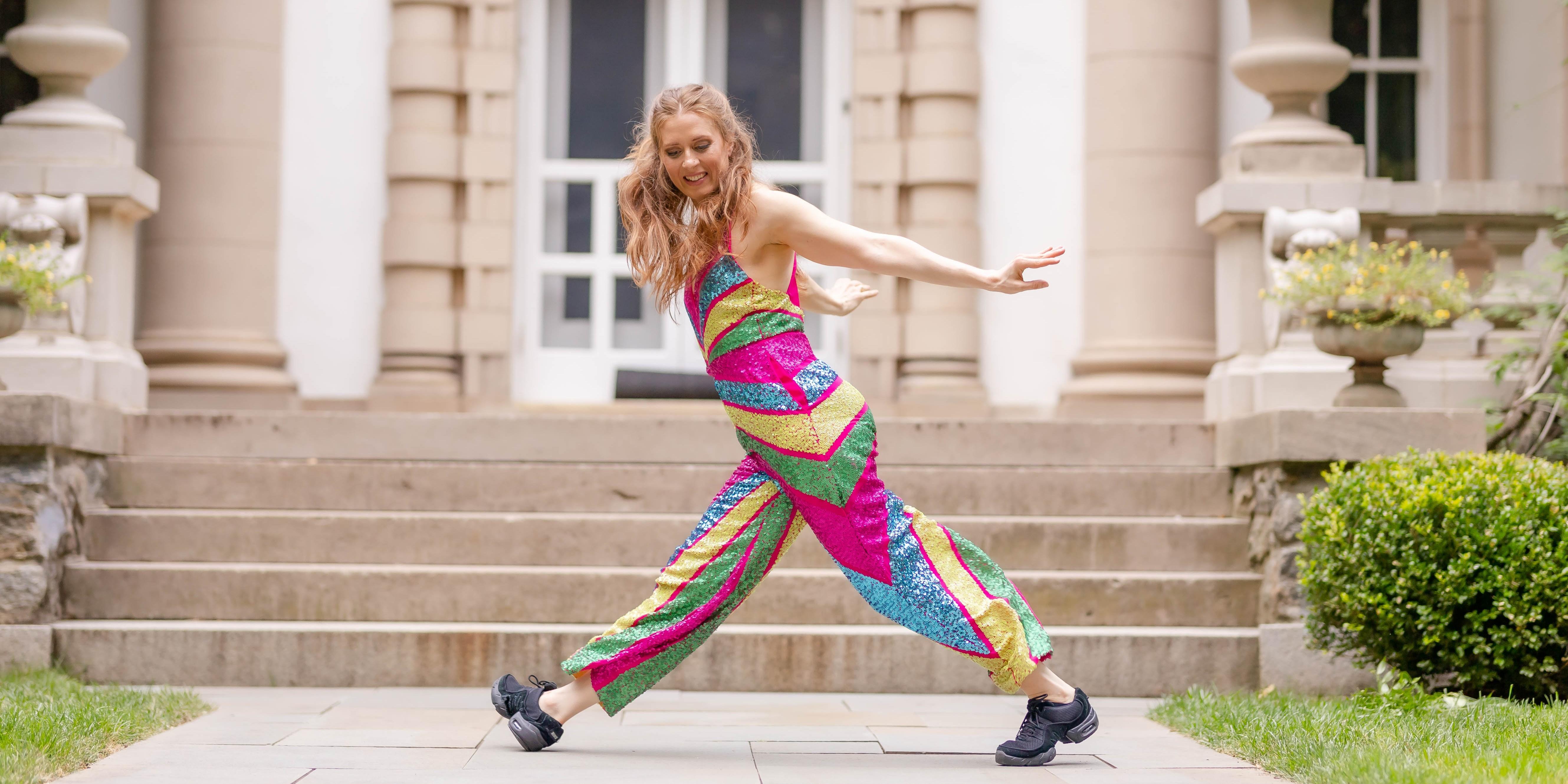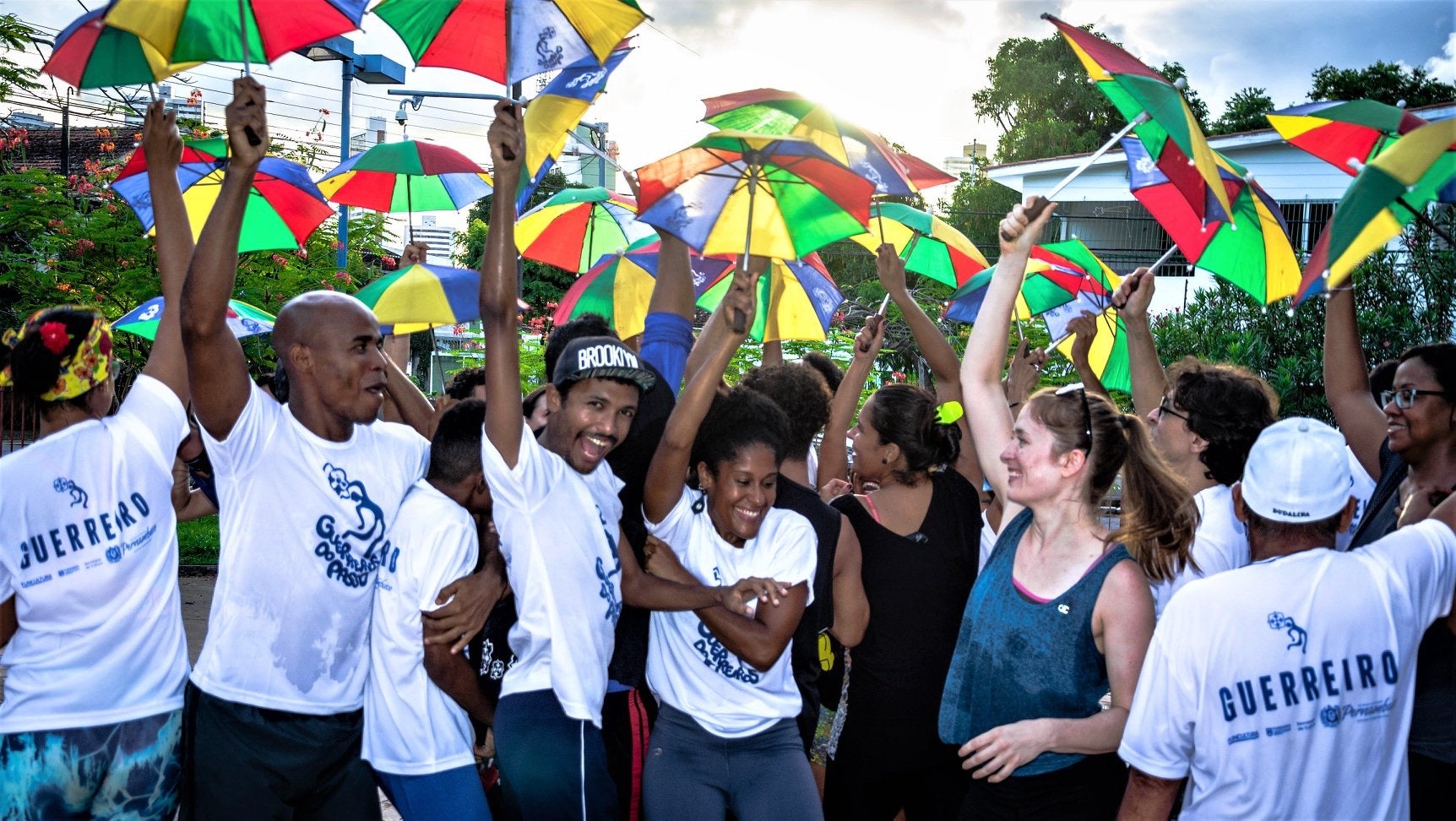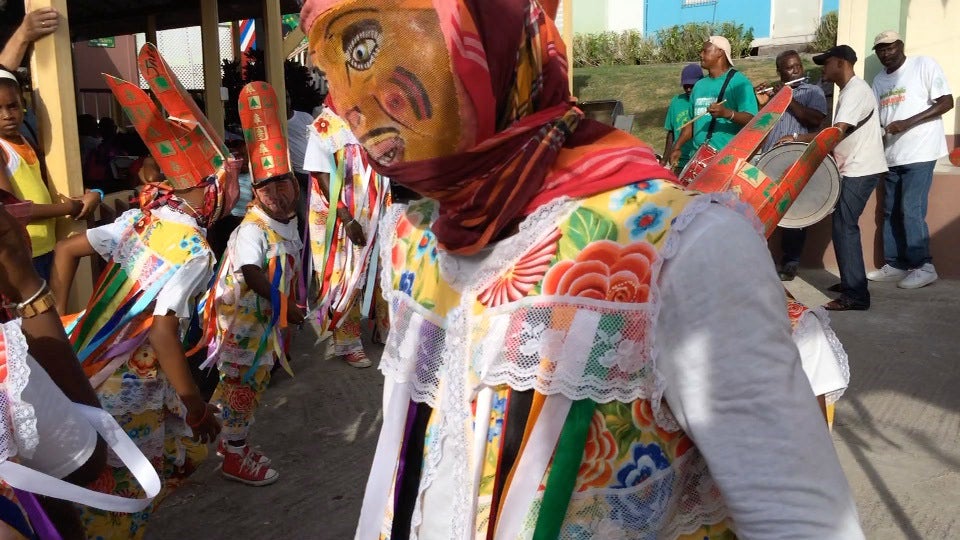
A lifetime of dancing around the world defines the work of Maryland faculty fellow Kate Spanos (Ph.D. ’16), non-profit founder and now first-time author. She specializes in dances of resistance, which allow communities to have their voices heard in a way that transcends speech. Through her travels to Montserrat in the Caribbean, Ireland, and Brazil—she’s seen the power of these dances to resist subjugation and build community firsthand, and she’s sharing this knowledge on campus and off.
“Art really does touch people on an individual level and it brings people together—which is very powerful,” said Spanos.
Her first exposure to dance came from learning her first steps in traditional Irish dance from the kitchen of her childhood home, something she continued into a master’s program at the University of Limerick. While there, she took up capoeira, an Afro-Brazilian cultural practice often described as a fight disguised as dance. It was an art form she took up out of simple curiosity—yet set her on a path of exploring a wide variety of global movement forms off-stage and in academia. But make no mistake, even on her trips to Montserrat and Brazil, doing the physical work was just as important as the critical research.
“It’s really important in my research to connect with people, to go to another country and say, hey, I want to learn more about your dance, about your culture—and then actually get up and dance with them,” said Spanos.

The dances unique to each country mean more than just the movement of bodies. In Montserrat, devastated by repeated volcanic eruptions in the 1990s, the community’s improvised dances at their festivals serve as a way to archive their history in a physical way. Their records may be destroyed, but their traditions remain preserved in the bodies of the individuals who populate the island. In Recife in northeastern Brazil, frevo is an indispensable part of the mestiçagem or “mixedness” of the region’s cultural identity, also serving as a political act by participating in the rowdy streets of the annual carnival, empowering the dancers to take up space. She investigated this as a Fulbright scholar, extending upon her dissertation work in Montserrat as a PhD candidate in the UMD School of Theatre, Dance, and Performance Studies.
Continuing this work in the U.S. was not a difficult decision for Spanos. Alongside her partner Pablo de Oliveira, they launched EducArte in 2019, a Maryland non-profit organization that fulfills the needs of the local Brazilian community by providing space for the education, preservation and practice of their cultural traditions. The organization lifts up Brazilian artists, encouraging collaboration between themselves and the audience.
“After coming back from Brazil in 2018, we [Spanos and de Oliveira] wanted to present the amazing artists we know who have so much cultural knowledge to offer,” said Spanos.
At Maryland, Spanos will be teaching a new seminar in Spring 2024 based on her work overseas, “Dancing the Archive: Irish and African Cultural Encounters in the Americas,” studying parallel narratives of oppression and resistance between Irish and African communities, specifically through dance and music. Currently, she teaches “Dancing in the World” with the Honors Humanities program through her role as a faculty fellow. Her teaching and research approach is outlined in her book, “Dancing in the World: Revealing Cultural Confluences”, released in August 2023. She co-authored the project with her colleague and Virginia Commonwealth University (VCU) assistant professor of dance, Sinclair Ogaga Emoghene. Together, they offer up a dialogue addressing issues of equity and inclusion in the academic dance space, focused on the way that Western and non-Western styles of dance are treated in academic spaces.

“There is such a different understanding around the world of what art even is, what aesthetics are, and what the spaces are that we should be dancing in. Sinclair and I decided that we needed to come together and write about how we approach these things,” said Spanos.
None of these projects would have been possible without her experiences abroad. The power of international dance lies in its ability to challenge our expectations of what art can be, and unite humanity broadly through cross-cultural exchange. As for Spanos, she looks forward to continuing her work with EducArte and Maryland, showcasing the need for global art, and the power it holds to transform people, classrooms, and communities for the better.
To learn more about Spanos and her work, check out her Fulbright profile sharing her experiences as a Fulbright scholar in Brazil.
